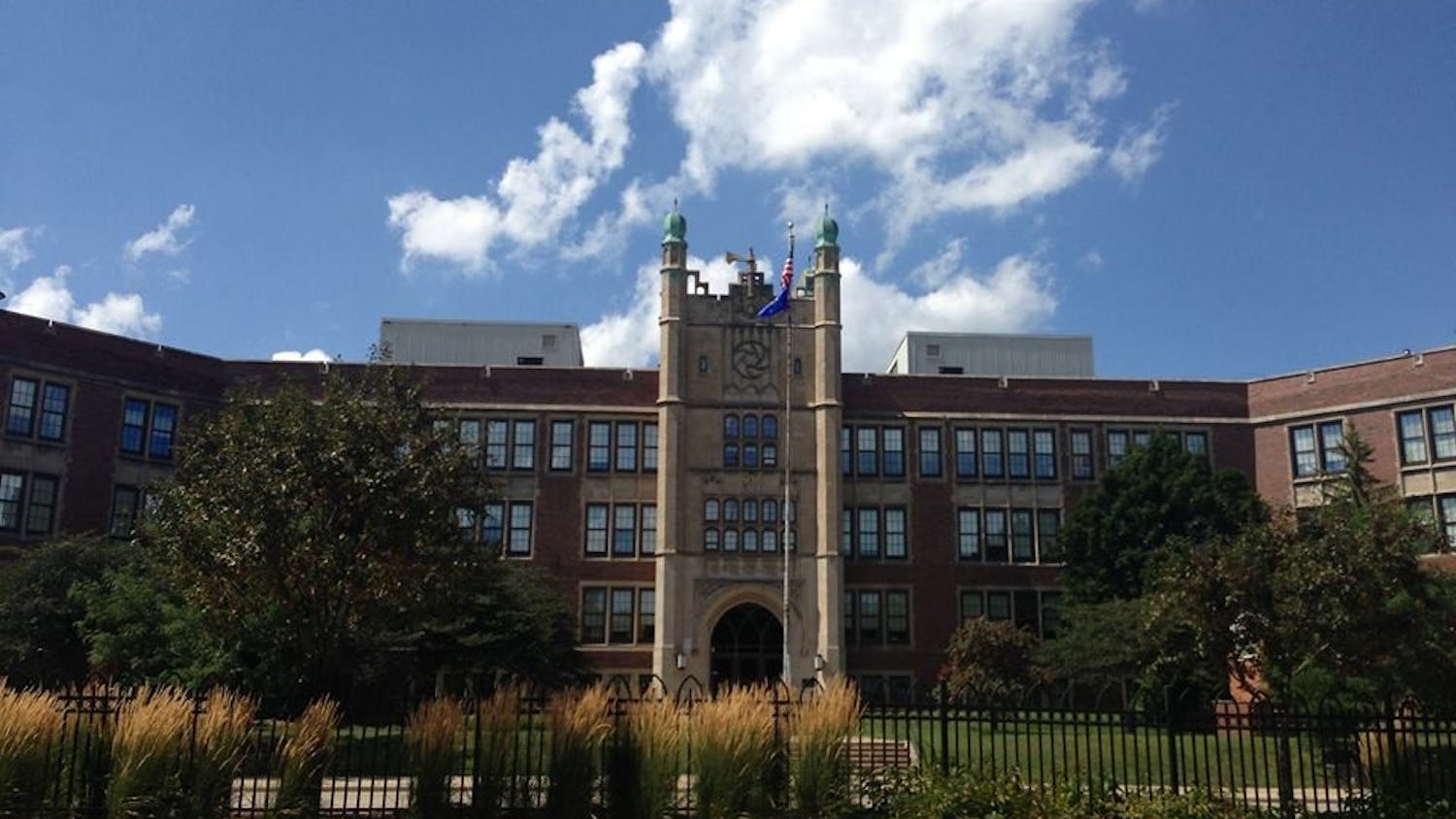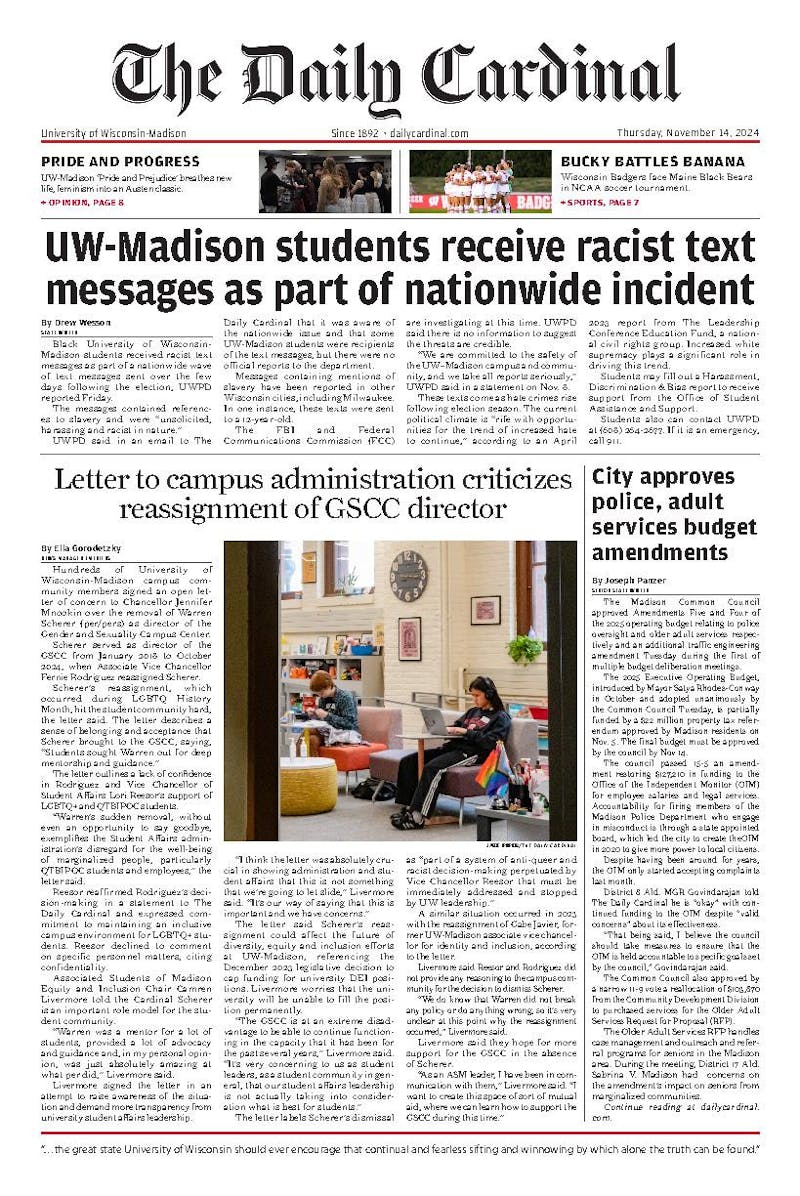During a moderated Q&A after a University of Wisconsin-Madison film screening, Bad River Band of Lake Superior Chippewa members discussed threats to their water, including the Enbridge Energy Company Line 5 pipeline that received initial approval from the Wisconsin Department of Natural Resources (DNR) Thursday.
The documentary “Bad River: A Story of Defiance” follows their fight for sovereignty and the history of the tribe and the Line 5 pipeline.
Hugging the south shore of Lake Superior in Northern Wisconsin is the Mashkiiziibii reservation, part of Bad River’s ancestral home. The tribe has 8,000 registered members nationwide, including 2,000 living on the reservation. Bad River organizers feel invigorated despite going up against Canadian oil company Enbridge.
“We got shit to do, and I don’t see anybody else doing it,” said Aurora Conley, vice chair of the Anishinaabe Environmental Protection Alliance.
Enbridge uses Line 5 to transfer crude oil from west to east Canada. The pipeline mostly stays within Canadian borders but dips into American territory and runs through the Bad River reservation. The Bureau of Indian Affairs initially let Enbridge install the pipeline without the tribe’s permission, according to the documentary. However, since the 1990s, the tribe has been in control of renewing Enbridge’s lease to their land.
Enbridge proposed a reroute of Line 5 to go around the Bad River Reservation, but the land surrounding the reservation is still in its watershed. A pipeburst there could still leak crude oil into the rivers, polluting Bad River water and Lake Superior. An Enbridge pipe burst in Kalamazoo, Michigan in 2010, the largest in-land oil spill in U.S. history.
“I’m angry that the DNR has signed off on a half-baked plan that spells disaster for our homeland and our way of life,” Bad River Band Chair Robert Blanchard said in a Nov. 14 statement. “We will continue sounding the alarm to prevent yet another Enbridge pipeline from endangering our watershed.”
The Army Corps of Engineers will send the DNR’s decision to the Environmental Protection Agency (EPA). The EPA will review the proposal and determine if the new pipeline might affect the tribe’s water quality, according to panelist Patty Loew, Bad River member and professor emerita at UW-Madison and Northwestern University.
The Biden administration urged that the pipeline be kept open last April after a Chicago-based lower court ordered its closure. The administration cited a 1977 energy treaty between the United States and Canada that keeps oil flowing.
“That was really disappointing,” Loew said. “Especially since everybody seems to forget that [the Bad River tribe and the U.S.] had treaties in 1837, 1842 and 1854. Our treaties predate the treaties that were signed in Canada, but nobody's talking about those treaties.”
The Bad River band sued Enbridge to remove the Line 5 pipeline from their land in 2019 on the grounds that Enbridge was trespassing after their lease expired in 2013. The tribe also feared the pipe would burst as the Bad River banks eroded and exposed the pipe. Erosion of the land following historic floods in 2016 and 2018 left the pipe at risk of rupturing, according to the documentary.
Despite the challenges they’ve faced, the Bad River people have maintained their culture and autonomy by finding refuge in ceremony and community, UW-Madison American Indian Science & Engineering Society coordinator and Bad River member Misty Jackson said during the Q&A.
“Love is being the spirit for the current and past generations that have passed because of us. Love is being a warrior, so please be a warrior,” Jackson said.
The movie has been nominated for three Critics’ Choice Award and won the Environmental Media Association’s Best Documentary Film. At the end of the film and panel, the brimming theater held a minute-long standing ovation.
Panelists told the crowd that in order to make the government care about an issue, they need to have a stake in the game.
“Mike Wiggins [the former Bad River Chairman] calls it canoe diplomacy,” Loew said. “Invite them out to paddle a river. Because unless you have that personal relationship with the natural world, you’re going to continue to view water and air and plants and animals as a commodity and not as relatives.”
The 7th generation principle is an Indigenous philosophy that asks practitioners to consider how a decision will affect the 7th generation down the line.
“We’re still here, we’re going to be here, [to] the 7th generation, this for you,” Conley said.






